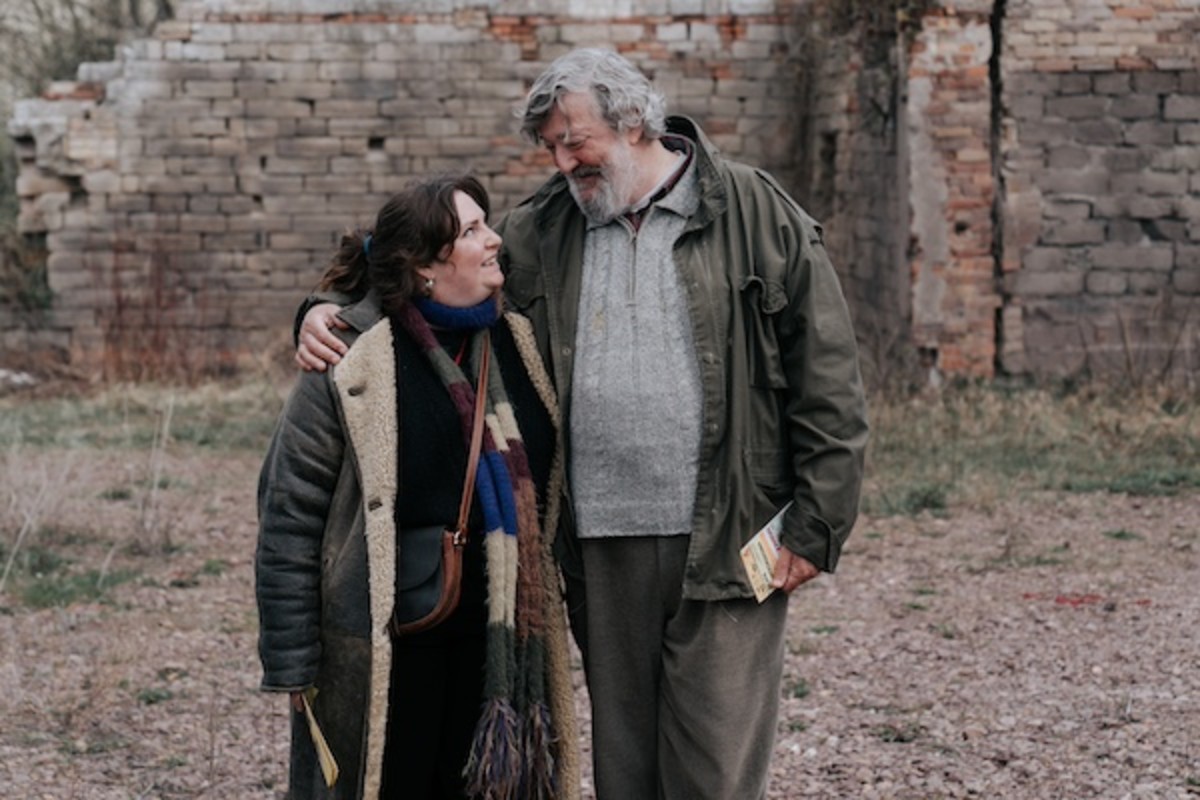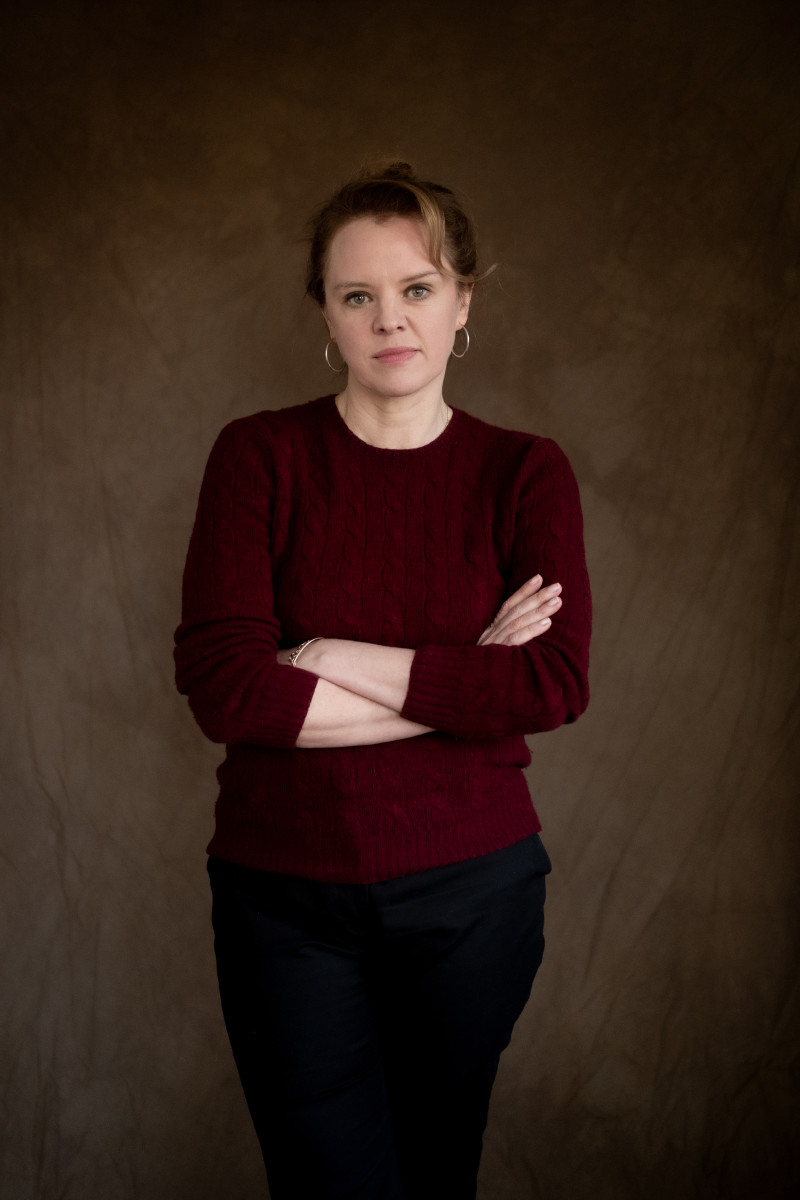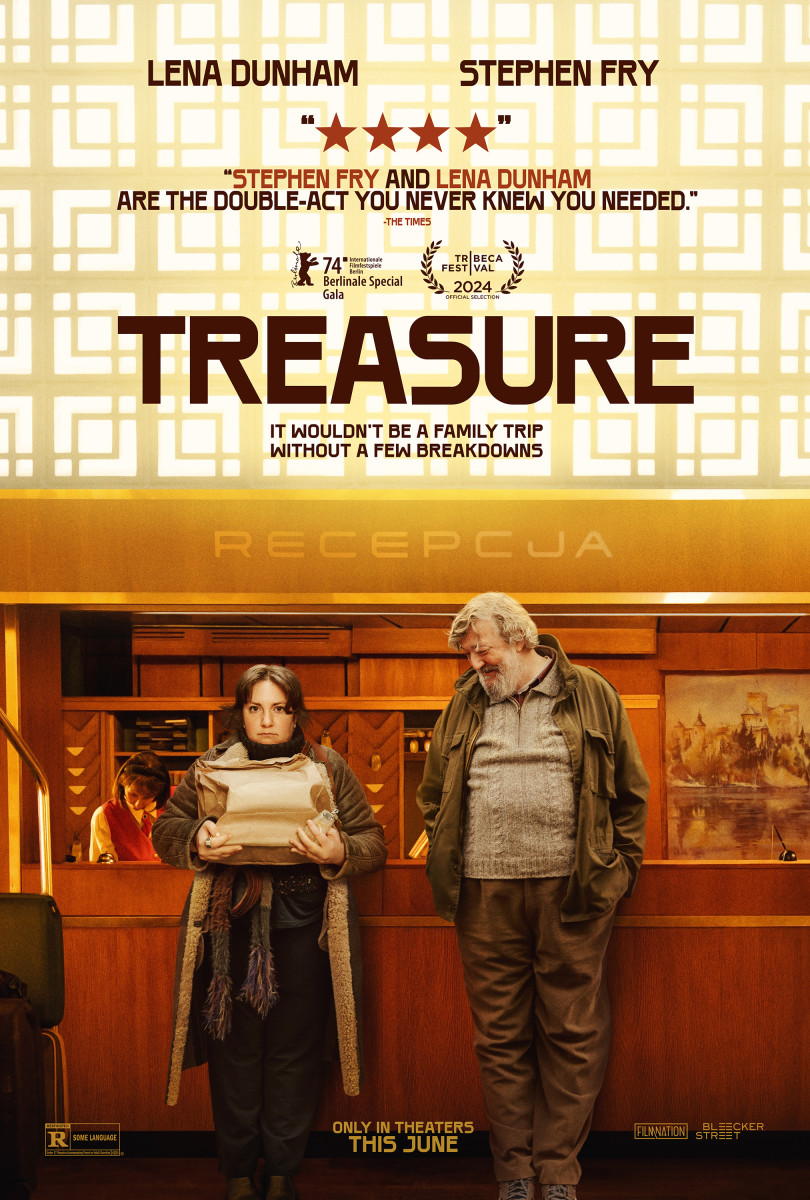Award-winning German filmmaker Julia von Heinz talks about her latest film ‘Treasure,’ from the adaptation process, dealing with transgenerational trauma as a theme, and what she hopes audiences take away from seeing the film.
SUSAN KOUGUELL for Script Magazine
I had the pleasure to speak with award-winning German filmmaker Julia von Heinz about her latest film Treasure, which had its world premiere at the Tribeca Festival.
Award-winning director and screenwriter, von Heinz won the German Film Award for Best Children’s and Youth Film with her debut, Nothing Else Matters, her 2020 film And Tomorrow the Entire World competed at the 77th Venice Film Festival and was nominated for Best Film at the German Film Awards. She earned her doctorate at the Film University Konrad Wolf in Babelsberg and teaches directing at the University of Television and Film in Munich.
About Treasure: Set in the 1990s, Lena Dunham plays Ruth, an American businesswoman who takes her father Edek (Stephen Fry), a charmingly stubborn Holocaust survivor, on a road trip through Poland to make sense of her family’s past. Treasure is the third part of von Heinz’s Aftermath Trilogy, which deals with the repercussions of the Holocaust in Germany and globally.

Kouguell: The script is an adaptation of Lily Brett’s best-selling autobiographical novel Too Many Men. Tell me about the adaptation process and working with your co-writer and husband John Quester.
Julia von Heinz: This is the fifth project I have co-written with my husband. Sometimes it’s very difficult because we sleep with the characters and wake up with the characters and we are in love with the characters. It keeps the relationship alive.
I like the process of working together. We’ve known each other for 25 years, and have been through a huge pool of events together. We both loved the novel. My mother gave it to me in the late 90s. (Like Lily Brett, von Heinz’s mother is the daughter of a Jewish survivor and part of that “second generation” to which Lily had given a voice.)

It’s a 700-page novel with a lot of side plots that you don’t see in the movie. It took us a long time to get to the core of the father and daughter story. (von Heinz describes their relationship as a “love story” between two individuals who could not be less alike.)
Kouguell: How much input did Lily Brett have during this process?
Julia von Heinz: Lily was at our side. She was so interested in the process and read from the very first draft to the last draft. It’s such a personal story for her.
Kouguell: Tell me about taking this script to the screen.
Julia von Heinz: Once we had the script I felt I could rely on it when we started filming. When we were on set and working closely with my cinematographer, I knew I could fill in the voids of elements that were not in the novel and bring my energy to make it flow. It’s the most challenging film in my career thus far.
Kouguell: You spent three days shooting at Auschwitz.
Julia von Heinz: The first time I went was in 2016 and it was a shock to experience. I returned many times after that. We were allowed to film outside the fence and in the parking lot along the border because we couldn’t interfere when visitors were there and film crews are not allowed inside. Our crew was permitted to take photographs near the barracks and our visual effects team could insert images behind the two actors in post-production.
Kouguell: The film centers on the theme of transgenerational trauma; father and daughter deal with their respective traumas quite differently. How did you approach this in the script and then onto the screen?
Julia von Heinz: In Lily’s book, there was so much inner monologue with the character always questioning herself and we couldn’t adapt that for the script. We didn’t want to use voiceover.
For example, we needed to find a way to convey the self-harming that is in the novel to the screen. In the novel, it is portrayed with her dieting and the difficulties about her mother. In the script, we conveyed her self-harming by her tattooing. We discussed this with Lily and she agreed that this was a good action to show.

Kouguell: What is your reaction when people dismiss Treasure without seeing it by saying it’s just ‘another holocaust film’?
Julia von Heinz: I heard that a lot. There isn’t a film about the second generation, and this is a generation that we need to tell stories about. We know that this trauma exists, and even exists in the third generation. I feel we should tell these stories, and I feel very confident about this.
Kouguell: What do you want the audience to come away with after seeing this film?
Julia von Heinz: I want to tell my audience to call your mother, father, children – and share stories that might not be easy to share and build a bridge. Share stories that are not only related to the Holocaust. There are so many important stories to share, especially with a father.

Treasure opens in Theaters nationwide on June 14, 2024.
Treasure had its International Premiere at the 2024 Tribeca Film Festival in the Spotlight Narrative.